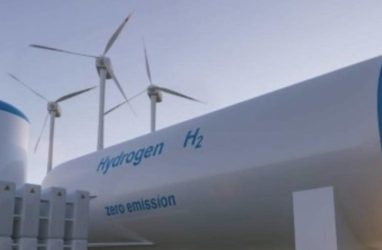Feed aggregator
Tanzanian developer partners with CreditNature to pilot biodiversity credits in the Kilimanjaro region
Euro Markets: Midday Update
Senior EU negotiator warns against rush to push forward on Article 6
US lawmakers push to exclude lucrative chemicals from official PFAS definition
Language in Senate defense bill is probably first step to shield widely used toxic F-gases from regulation
US lawmakers and the military are pushing for a new definition of toxic PFAS “forever chemicals” that would exclude a subclass of toxic compounds increasingly used across the economy and considered to be potent greenhouse gases.
Language included in the defense bill by the Senate armed services committee asks the military to detail how it uses fluorinated gases, or F-gases, stating that the committee is “interested in learning more about how the [department of defense] may or may not be impacted by the definition” of PFAS.
Continue reading...Japan awards grant to two carbon developers for methane reduction projects in the Philippines
Guarantee of Origin: Move to prove credentials of green goods, set up REGO for renewables
The post Guarantee of Origin: Move to prove credentials of green goods, set up REGO for renewables appeared first on RenewEconomy.
Power sector the ‘lynchpin’ to meeting Paris goals in lower-income economies, says World Bank
Europe has likely passed its LNG consumption peak, analysts say
Almost 40% of Amazon critical to climate remains unprotected -study
Korean research team introduces low-carbon catalyst for SAF production
Edinburgh-based startup raises £1 mln for industrial heat decarbonisation technology
Qantas tweaks its carbon strategy as tightening credit, SAF supply seen as ongoing risk
Korean refiner to launch country’s first SAF commercial production line
Beware the great green deception: 'perceptionware' is being used to hoodwink us | George Monbiot
Grand schemes, many backed by government, masquerade as taking action on the environment. They should be disowned
Let’s talk about perceptionware. Perceptionware is technology whose main purpose is to create an impression of action. Whether it will ever work at scale is less important, in some cases entirely beside the point. If it reassures the public and persuades government not to regulate damaging industries, that’s mission accomplished.
Managing perceptions is an expensive business. Real money, especially public money, is spent on fake solutions. Take carbon capture and storage: catching and burying carbon dioxide emissions from power stations, oil and gas fields, and steel and cement plants. For 20 years, it has spectacularly failed to reduce greenhouse gas emissions. In fact, its only clear successes involve enhanced oil recovery: carbon dioxide is used to drive oil out of geological formations that are otherwise difficult to exploit. With astonishing chutzpah, some oil companies have claimed the small amount of carbon that remains trapped in the rocks as a climate benefit. Though it is greatly outweighed by the extra oil extracted, they have, as a result, received billions in government subsidies.
Continue reading...Farm fences trouble turtles in search of water. Here’s how to help
Fortescue breaks ground on Gladstone PEM50 green hydrogen facility
The post Fortescue breaks ground on Gladstone PEM50 green hydrogen facility appeared first on RenewEconomy.
FEATURE: Offshore wind is gaining traction in APAC, but regulatory gaps, supply chain bottlenecks could stifle deployment
Energy Insiders Podcast: Rent-seeking and net zero
The post Energy Insiders Podcast: Rent-seeking and net zero appeared first on RenewEconomy.
Fossil fuel companies face rising lawsuits to compensate for climate damage, misleading adverts -report
Consumerism and the climate crisis threaten equitable future for humanity, report says
The Earth Commission says hope lies in sustainable lifestyles, a radical transformation of global politics and fair distribution of resources
All of humanity could share a prosperous, equitable future but the space for development is rapidly shrinking under pressure from a wealthy minority of ultra-consumers, a groundbreaking study has shown.
Growing environmental degradation and climate instability have pushed the Earth beyond a series of safe planetary boundaries, say the authors from the Earth Commission, but it still remains possible to carve out a “safe and just space” that would enable everyone to thrive.
Continue reading...





